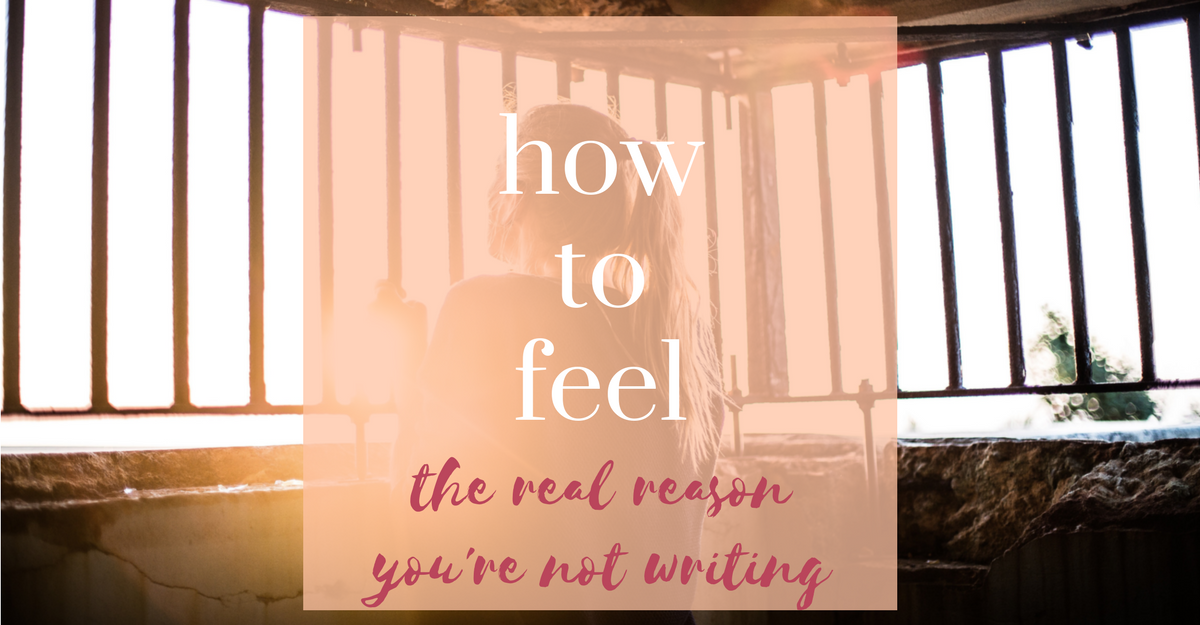Building a mastery mindset (or a mistress-y mindset)
/Last night, I dug through my childhood bedroom and found a story I wrote as a kid. It was—how shall I say—amusing.
Here, for your reading pleasure, is a brief excerpt:
Adrian nearly shouted. “You know as well as I do that it wasn’t from hunger she fainted! How do you explain the bottle of chloroform I found in your room? How?”
Michael gasped. “What? I-I-I’ve been framed.” And he ran out.
Adrian tried to get me to drink the water, but I shook my head.“But you’ll die, Andrea, die,” he said, sounding as though he was on the verge of tears.
I don’t remember my childhood all that well. I don’t remember where I got the giant sticker I’m wearing in my kindergarten class photo, I’m not sure why I struggled so much to memorize the times tables, and I couldn’t tell you whether my soccer team was any good. (I have a sad suspicion we weren’t.)
I do remember writing that story, though. I’d just turned twelve, and I was adjusting to the rule of my seventh grade teacher, Mrs. Desmond, who forbade us to dot our i’s with circles or hearts. I’d been dotting my i’s with circles because the cool girls in my class did, but I wasn’t remotely cool. My skin was too pale and my bangs were too thick and I didn’t fill out a t-shirt the way I should, and I knew it.
One Saturday, I walked to the drug store and bought a tube of cheap concealer. Every morning before school, I smeared the toxic-smelling gunk over my entire face. The concealer sank into my pores and turned orange in direct sunlight, but I kept wearing it anyway.
“You don’t understand,” I sobbed when my mom attacked my face with a damp paper towel. “I have to wear makeup.”
Me, seventh grade.
At dances in the school gym, as Sister Merris and Sister Geraldine monitored the swaying middle schoolers, I waited in the bleachers, letting the DJ’s multicolored lights sweep over me, wishing that one boy—just one—would ask me for a slow dance. No one ever did.
Yes, I was that uncool.
So I read. So I wrote stories. So I imagined being Andrea, a dainty, gorgeous woman with men falling all over her. (And chloroforming her, apparently.)
I have no idea whether I thought the story of Andrea was any good. But I do remember that I loved writing it. I remember rushing home from the bus stop, flopping onto my floral-patterned bed with a floral-patterned notebook, and slipping through the wormhole that separated my world from the world of my story.
You know what? I don’t think I even cared whether my writing was good. I did it out of love.
During the next year or two, though, I realized that my stories couldn’t all be about damsels in distress and the (many) men who fall in love with them. I started to judge my work—to judge it harshly—and the process of writing became tougher, less transporting. Most of the stories I started in high school I abandoned after only a few pages.
So much writing advice—so much life advice, for that matter—tells us to let go of outcomes. Check out Elizabeth Gilbert’s wonderful TED Talk, or Anne Lamott’s brilliant piece on “Shitty First Drafts” [affiliate link], or Cheryl Strayed’s account of reaching a point “where the prospect of not writing a book was more awful than the one of writing a book that sucked.”
Just show up and do the work, the advice goes. Don’t fret over whether it’s any good.
Much as I love this line of reasoning, it doesn’t work for me. Not caring about the outcome? Oh, friends. That ship sailed ages ago.
Maybe it’s because I sat out so many school dances, but I can’t let go of wanting everyone to love me and approve of me and absolutely adore my writing. I doubt I’ll ever wake up and write in my journal, “You know what? I’m ready to write a book that sucks.”
I wish I could let go, believe me. I just can’t.
Since I don’t want to go through the rest of my life ripping myself apart, I have to stare down an important question: Is there a healthy, self-compassionate way I can have high standards for my writing? Or, for the sake of my sanity, should I go back to my old job or burrow under my comforter and call it a day? (If you guessed that it’s a floral-patterned comforter, you’d be correct.)
Last week, I found the answer to this question—or at least an answer to this question—in a book by Dr. Alice Boyes [affiliate link].
“There’s a way to keep your standards high but avoid the problems that come from perfectionism,” Boyes tells us. “If you can shift your thinking from a performance focus to a mastery focus, you’ll become less fearful, more resilient, and more open to good, new ideas.”
So, what does that mean? If you have a performance focus, your top priority is to prove to the world that you’re good at something. If you have a mastery focus, though, your top priority is to improve your skills.
Suppose someone with a performance focus—let’s call her Maura—receives a rejection letter from a literary journal. Maura longs to prove to the world that she’s a brilliant writer. Because she didn't impress the editor at the journal, she tells herself she’s a failure and a crappy writer and she should never set pen to paper (or fingers to keyboard) again.
Now suppose someone with a mastery focus—let’s call her Laura—receives the same rejection. Laura’s heart doesn’t crumple when she gets the news. She doesn’t delete the email after reading half of the first sentence. If the editor offers feedback, Laura weighs it. Maybe she revisits her piece and taps the bricks of its foundation, checking whether any of them are crumbling. Sure, Laura might curl up on the couch with an extravagant slice of chocolate cake, but her focus is on growing as a writer, not fretting over whether she’s already good enough.
I don’t know about you, but I’ve spent way too much of my life as a Maura.
I like the idea of a mastery mindset because it’s compatible with caring about the outcome of your work. In our little allegory, Laura still cares about writing well. Unlike Maura, though, she doesn’t have a black-and-white view of what writing well means. Laura doesn’t categorize herself as either a wild success or a wild failure.
In her book, Dr. Boyes offers an exercise to help you develop your own individualized mastery mindset. (I like to think of it as a mistress-y mindset, which to my ear sounds more lighthearted and less, you know, patriarchal.)
Step one is to identify your destination: “My goal is to master the skills involved in ______.”
Step two is to imagine how someone with your mastery goal would behave. How would that person react to mistakes, failures, or setbacks? How would she prioritize tasks? What new skills would she want to learn? And how would she respond to anxiety?
Let these answers guide your way. And if they lead you to write a story about chloroform attacks, fainting heroines, and beautiful men on the verge of tears—well, I won’t judge.











